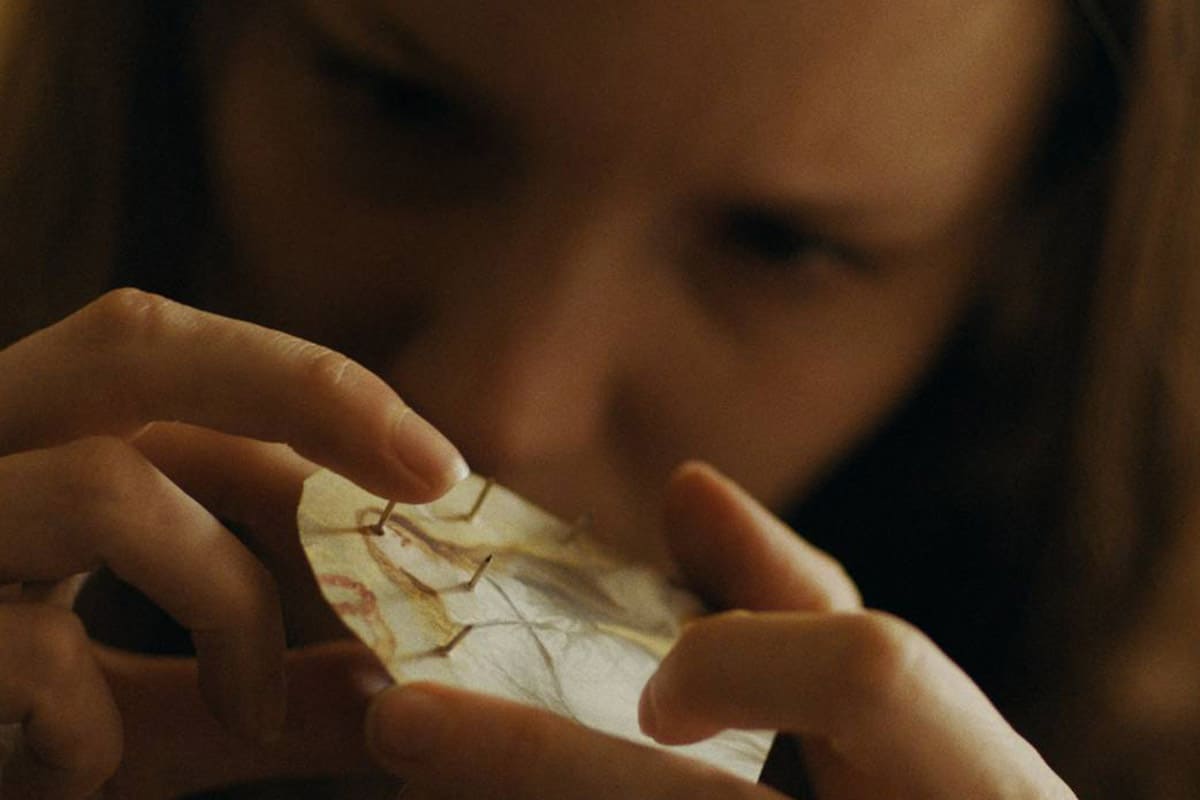
Welcome to World Builders, our ongoing series of conversations with the most productive and thoughtful behind-the-scenes craftspeople in the industry. For this entry, we chat with Saint Maud writer-director Rose Glass. Note: this interview was conducted in February 2020 before the film’s original April 2020 date was scrapped and its release was postponed.
Most first-time filmmakers endure a long, arduous creative process from script to screen, but few have had to tack on the indeterminate anxiety of distribution limbo as it exists in a pandemic-ridden world, and even fewer have had to shoulder that heavy consternation with the promise of a breakthrough under their belt, like Rose Glass. Her debut feature, Saint Maud, went from being one of the most buzzed-about 2020 spring releases (along with its A24 relative, The Green Knight) to being nearly unknown all over again, albeit for good reason.
With momentum down, the situation worsening, and a genuinely remarkable film on their hands, A24 decided to hold Saint Maud for a theatrical release, playing the game that so many distraught distributors have played since March: announcing the occasional release date, promptly withdrawing it, rinsing, and repeating. Ten months later, after releases in the UK, Norway, and Poland, it is finally coming to US theaters (which are largely inoperative, mind you) with a release date set for January 29th and an exclusive streaming deal over at Epix beginning on February 12th.
Part Catholic body horror, part cerebral thriller, part excavation of what lies beneath devotion, Saint Maud follows a palliative care nurse in her twenties named Maud (played by a grave and feverish Morfydd Clark), who has recently converted to Catholicism in her own grim, inflexible manner – one that hinges on orgasmic possession and the hermetic practice of self-flagellation as a means of denouncing the flesh and reminding oneself of their inherent depravity in the face of God. Needless to say, she is not a great hang.
But her terminally ill at-home patient, Amanda (Jennifer Ehle), has to have her around regardless. A sharp, critical, and abrasive presence, Amanda speaks her mind and gives zero shits about Maud’s faith, her own mortality staring her down with all the cruelty that life can muster. A mysterious backstory lingers through flashbacks as the sinister nature of Maud’s attempted purity (on behalf of herself and Amanda) ramps up, with the film wading into Jesus-fucking-Christ levels of insanity.
We got on the phone with writer-director Rose Glass (almost a year ago) to talk about it:
Do you have a spiritual or religious background?
My parents were Christian. Me and my sisters went to a Catholic all-girls school. My family wasn’t super religious, but we’d go to church on special occasions. So, I was familiar with it but not particularly interested in it at the time. And then when I got older and got a bit more distance and an outsider’s perspective, it started to get more interesting.
Did you dig into Christian history for the film? Did you study monasticism, asceticism, saints, martyrs, etc.?
Not really. I took the approach of someone who found religion quite late in her life, you know? She’s a very recently converted person creating her own weird version of faith, which you find out pretty quickly. I didn’t feel like she was someone who adhered to specific Christian doctrine or was particularly aware of history. It’s her own warped version of Christianity.
What led you to write a body horror film for your first feature? Are you trying to make a career as a horror director?
Not necessarily. I mean, the body…I don’t feel like it’s especially a body horror, but I’m happy if people enjoy those elements of it. That was the side of the story I was more interested in, though. I don’t see it being particularly theological. The psychological and almost physical relationship she has with God appealed to me a bit more.
Speaking of the physical relationship, is it safe to call it orgasmic?
[Laughs] Yeah, yeah. Sure.
Why did you decide to portray devotion like that?
As someone who’s secular, I wanted everybody watching the film to get the bond that Maud has with God. That kind of ecstasy in connecting to something bigger than yourself is a feeling you can get from many other things, which people can relate to. And the idea of it being a more strong, physical thing…I don’t know. We all go about things in weird ways, but we’re all ultimately kind of looking for the same thing. Ecstasy, I guess? I don’t know that one is consciously going about looking for that, but, you know, in some way searching for a feeling of transcending the body and feeling connected to Something.
A lot of people are making connections between Saint Maud and Carrie, The Exorcist, Under the Skin, etc. Are those connections intentional? And were there other, more religious films that you were influenced by? Like The Passion of Joan of Arc, or The Apostle, or anything along those lines?
There were certainly religious films. Carrie and The Exorcist have been mentioned a lot, which is obviously really cool, but I wasn’t consciously thinking about either of those while I was writing. But things like Black Narcissus and The Devils by Ken Russell and Through a Glass Darkly by Bergman, about a woman who communes with God. Those would be the main religious ones. Oh yeah, and like you said, The Passion of Joan of Arc.
And, you know, the film is not at all based on Joan of Arc, but in researching her I did find it quite interesting that there are some psychologists who believe, looking back at the evidence, that maybe Joan of Arc had a particular kind of temporal lobe epilepsy, which comes with these kinds of ecstatic seizures and hallucinations and stuff and would explain a lot about her story.
Iconography is a big part of the film. It played to me as if the way she interacts with icons is representational of the ways we interact with media or our phones.
Yeah, it wasn’t so conscious. I did realize when we were making it that, in a way, I sort of deliberately ignored social media and the internet and more contemporary things, which, you know, in real life she’d be spending a lot more time with those things. I wanted to keep it timeless. But yeah, I do think it’s quite similar. In a way, her relationship with God is maybe the relationship some have with the internet. They have followers, and they’re trying to please people and be seen and all of that.
Are you pushing up against a certain strength of devotion to any single thing then?
Certainly more so than in a strictly religious sense. But yeah, exploring the dangers of when anybody submits too fully to something. Question things!
How was your film financed and found?
I finished film school in 2014. In 2016, me and one of my producers took an idea for Saint Maud to Film4, and then we developed the film with them for a couple of years, and it was financed by them and by the BFI, and then we shot it in late 2018. So, that’s how it was made, and then we premiered at Toronto, and A24 saw and picked it up for US distribution. That’s a very condensed version, obviously [laughs].
Do you have any plans for your next film?
I am writing two things. To be honest, from my selfish little bubble, the timing of all this is not bad in the sense that I can retreat into my little writing hermit cave thing. So hopefully, whenever, if ever, all this comes to normal, I’ll have something to start pushing along.
Are they horror films?
I don’t know yet. Possibly. One of them, possibly.
Saint Maud releases theatrically on January 29th and debuts on Epix on February 12th.
Related Topics: Jennifer Ehle, Morfydd Clark, Rose Glass, Saint Maud, The Exorcist

